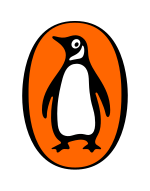
Back دار بنغون للنشر Arabic Penguin Books Bulgarian পেঙ্গুইন বুক্স Bengali/Bangla Penguin Books Catalan Penguin Books Danish Penguin Books German Penguin Books Esperanto Penguin Books Spanish پنگوئن بوکس Persian Penguin Books Finnish
 Logo used since 2003 | |
| Parent company | Penguin Random House (as of 1 July 2013)[1] |
|---|---|
| Status | Active |
| Founded | 1935 |
| Founder |
|
| Country of origin | United Kingdom |
| Headquarters location | City of Westminster, London, England |
| Distribution | United Kingdom, Ireland, United States, Australia, Canada, New Zealand, South Africa, Spanish-speaking world, Brazil, Germany, Portugal |
| Key people | |
| Publication types | Books |
| Imprints | Penguin Classics, Viking Press |
| Revenue | €3.4 billion [2] |
| Owner(s) | Bertelsmann |
| No. of employees | 10,000[2] |
| Official website | penguin |
Penguin Books Limited is a British publishing house. It was co-founded in 1935 by Allen Lane with his brothers Richard and John,[3] as a line of the publishers The Bodley Head, only becoming a separate company the following year.[4] Penguin revolutionised publishing in the 1930s through its inexpensive paperbacks, sold through Woolworths and other stores for sixpence, bringing high-quality fiction and non-fiction to the mass market.[5][6] Its success showed that large audiences existed for several books. It also affected modern British popular culture significantly through its books concerning politics, the arts, and science.[7]
Penguin Books is now an imprint of the worldwide Penguin Random House, a conglomerate formed in 2013 by its merger with American publisher Random House, a subsidiary of German media conglomerate Bertelsmann.[8] Formerly, Penguin Group was wholly owned by British Pearson plc, the global media company which also owned the Financial Times.[9] When Penguin Random House was formed, Pearson had a 47% stake in the new company, which was reduced to 25% in July 2017. Since April 2020, Penguin Random House has been a wholly owned subsidiary of Bertelsmann. It is one of the largest English-language publishers known as the Big Five, along with Holtzbrinck/Macmillan, Hachette, HarperCollins and Simon & Schuster.[10]
Penguin Books has its registered office in the City of Westminster, London, England.[11][12]
- ^ "CEO Markus Dohle Announces Penguin Random House Global Leadership Team". Penguin Random House. 1 July 2013. Archived from the original on 4 July 2013. Retrieved 1 July 2013.
- ^ a b "PENGUIN RANDOM HOUSE LIMITED - Filing history (free information from Companies House)". Find-and-update.company-information.service.gov.uk. Retrieved 22 October 2020.
- ^ Allen's brothers Richard and John were co-founders and shareholders, though Allen was the dominant figure in the company. John died in service in 1942, Richard sold his share to Allen before the company went public in 1961. The Penguin Companion, pp.80–81, Penguin Collectors' Society, 2006.
- ^ "About Penguin – company history", Archived 5 November 2013 at the Wayback Machine, Penguin Books.
- ^ Florence Waters (26 August 2010). "Penguin's pioneering publisher – who never read books". Daily Telegraph. Archived from the original on 11 January 2022. Retrieved 17 February 2014.
- ^ The original size was the 'A' format of 111 x 181mm, "Why do the PCS Publications vary in size and format?". penguincollectorssociety.org. The Penguin Collectors Society, 2000-2024. 2024. Retrieved 12 September 2024.
- ^ Joicey, Nicholas (1993), "A Paperback Guide to Progress: Penguin Books 1935–c.1951", Twentieth Century British History, Vol. 4, No. 1, pp. 25–56; and Ross McKibbin Classes and Cultures: England 1918–1951, Oxford, 1998, ISBN 0-19-820672-0.
- ^ Mark Sweney "Penguin and Random House merger to create biggest book publisher ever seen", The Guardian, 29 October 2012.
- ^ Penguin's many divisions are listed here "About Penguin: Publishing structure". Archived 15 April 2012 at the Wayback Machine
- ^ "Who Are "The Big Six"?". Fiction Matters. 5 March 2010. Archived from the original on 1 January 2011. Retrieved 6 June 2012.
- ^ "26. What is Penguin Books Limited's company registration number? Archived 11 July 2009 at the Wayback Machine." Penguin Books. Retrieved on 28 August 2009.
- ^ "Maps". Archived 5 September 2011 at the Wayback Machine. City of Westminster. Retrieved on 28 August 2009.